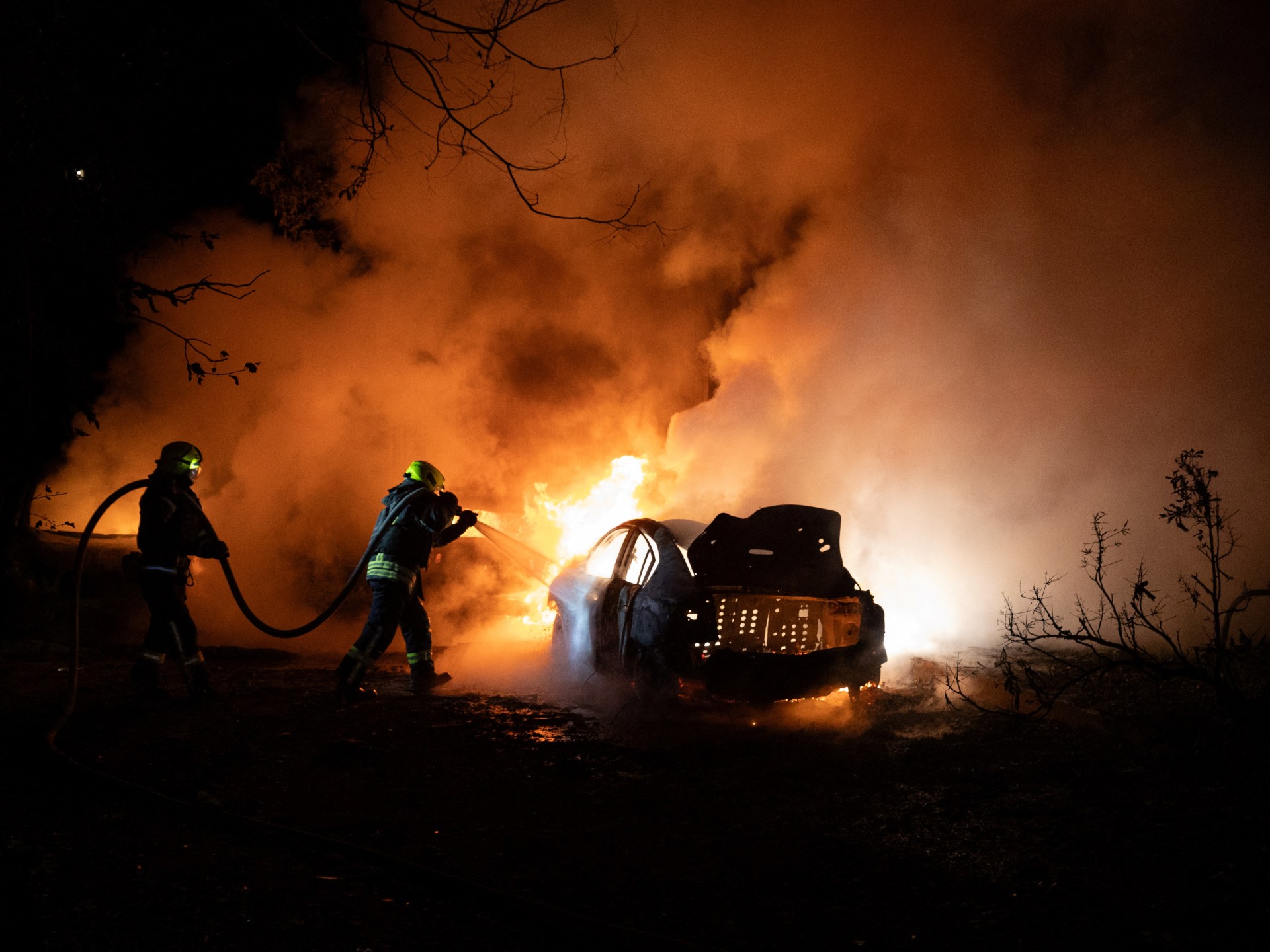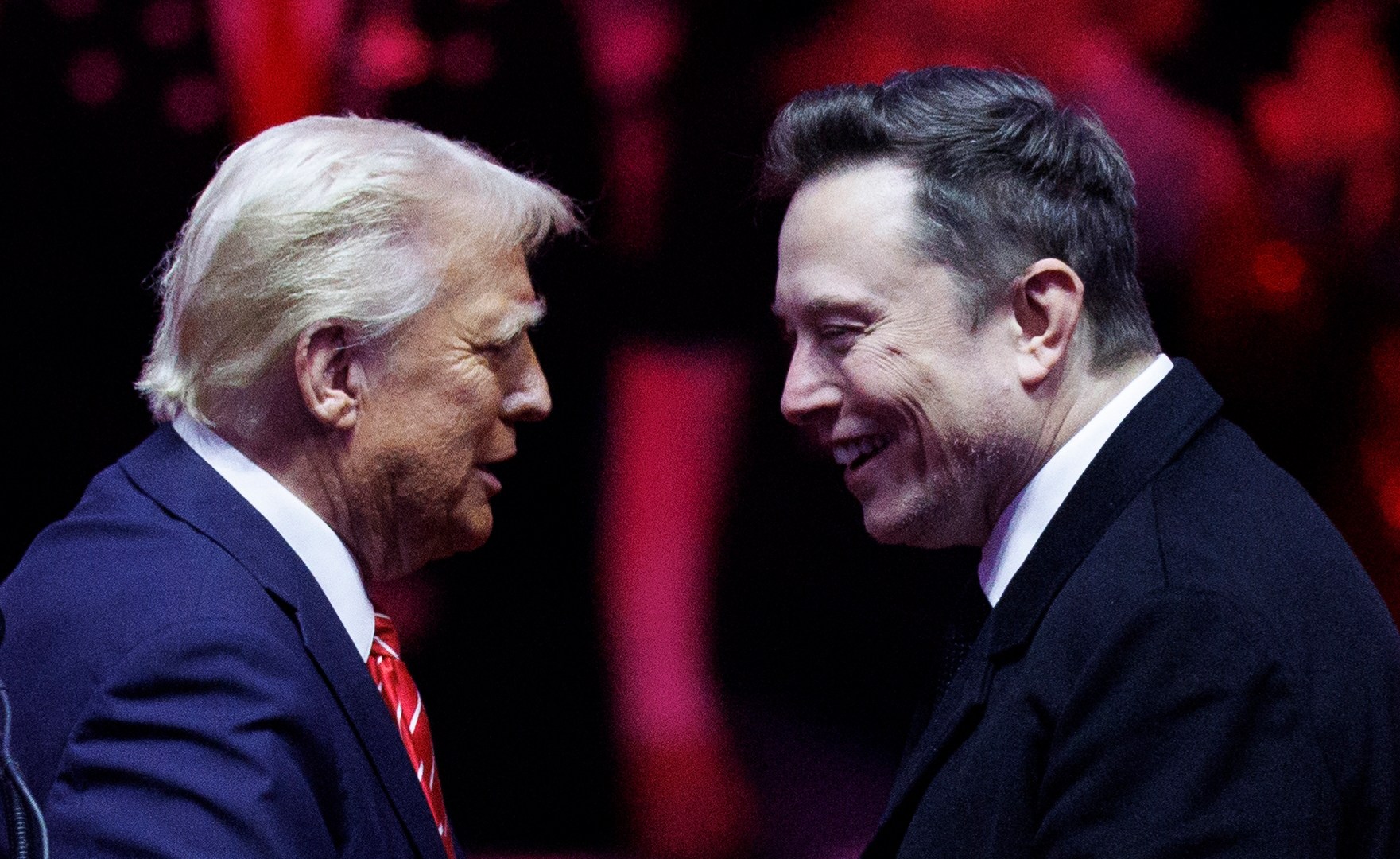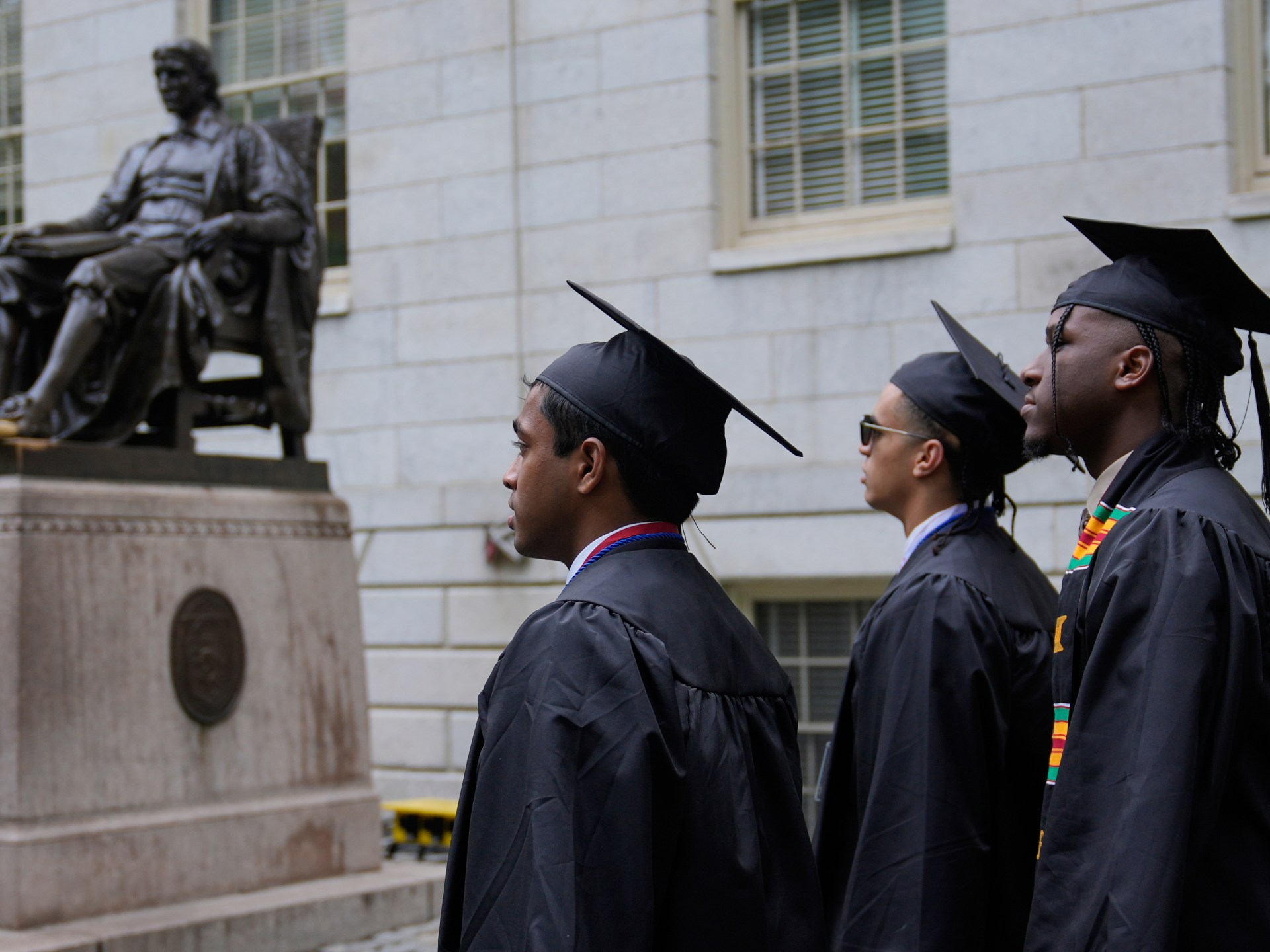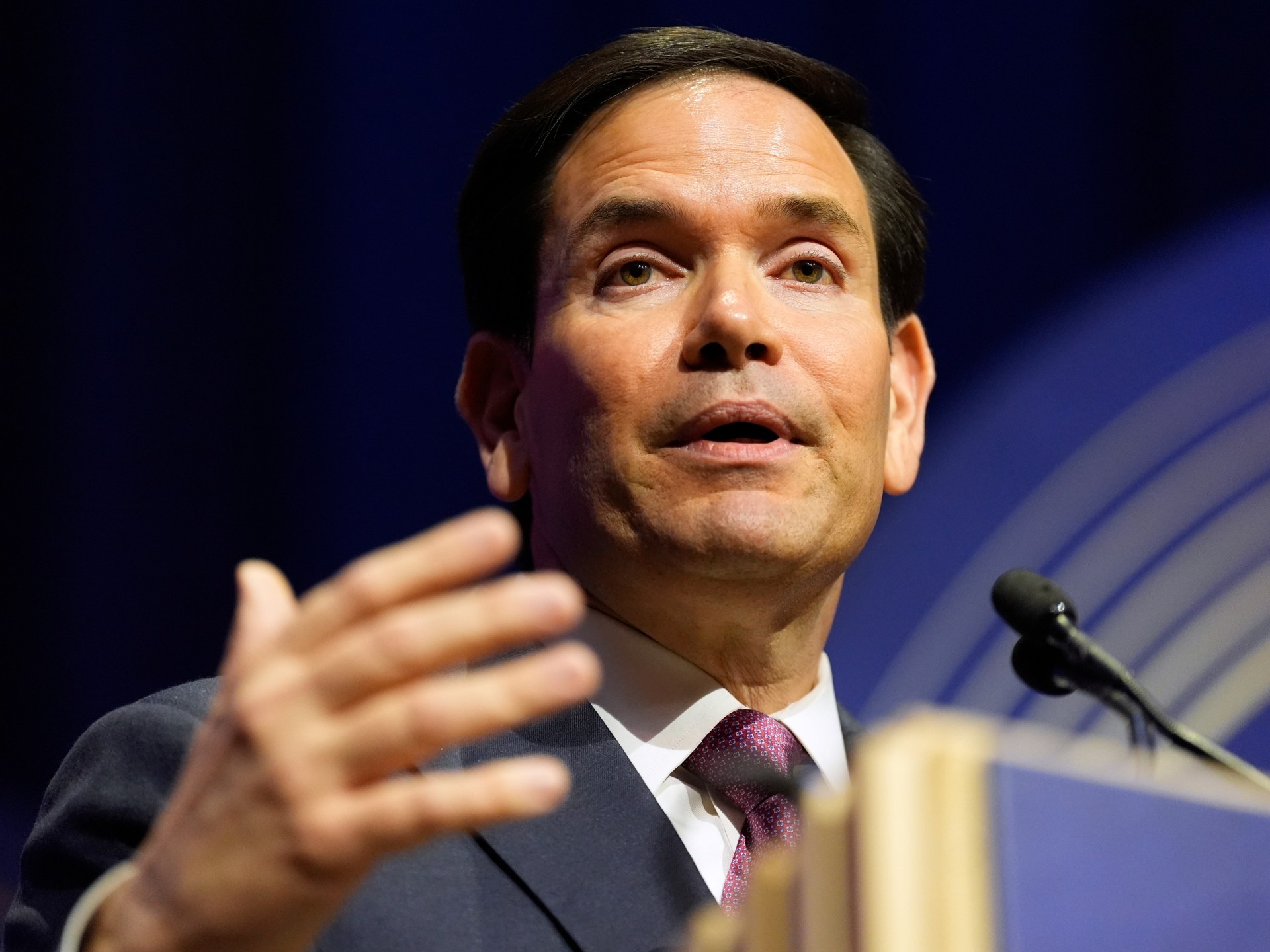Washington, DC – The ties between United States President Donald Trump and billionaire Elon Musk have seen highs and lows throughout the years.
But it all came crashing down on Thursday after months of what appeared to be an unshakable alliance in the White House.
A disagreement over Trump’s massive tax bill has escalated over the past few days, with Musk going so far as to suggest that the US president should be impeached.
In a series of social media posts, Musk launched personal attacks against Trump, culminating in a claim, made without evidence, that Trump is in the “Epstein files”.
Those documents relate to the late sex offender Jeffrey Epstein and include travel logs and guest lists related to him and his associates. Part of the Epstein files remain secret, sparking curiosity and conspiracy theories about who might be mentioned.
Trump, meanwhile, responded with a social media fusillade of his own. He claimed he asked Musk to leave his White House role and suggested cutting the government subsidies and contracts awarded to the billionaire’s companies.
So how did the partnership between Musk and Trump collapse? And what may come next for the two men often described as the world’s richest and the world’s most powerful, respectively?
The honeymoon phase
A few months before the war of words between Musk and Trump erupted, the two seemed like an inseparable political force.
Musk had spent nearly $200m to elect Trump to a second term in 2024. Days after his successful election, Trump responded by appointing Musk to lead a newly created government cutting agency, called the Department of Government Efficiency (DOGE).
Even the name of the department reflected the leeway that the billionaire investor had in Trump’s administration. The word “doge” refers to an internet meme of a dog, favoured by Musk, that became popular in 2010.
In the early weeks of Trump’s second term, Musk became one of the most prominent figures in the administration – and a lightning rod for public criticism. Under his leadership, DOGE sacked thousands of federal employees and gutted various agencies, including the United States Agency for International Development (USAID).
Musk appeared so powerful that some Democrats started to refer to him as “President Elon” to get under Trump’s skin.
But Trump and Musk presented a united front. During a Fox News interview in February, the US president and his then-adviser appeared side by side and heaped praise on one another.
“He gets it done. He’s a leader,” Trump said of Musk.
“I love the president. I just want to be clear about that,” Musk said of Trump.
Musk, who is originally from South Africa, started espousing right-wing views over the past few years and grew vocally critical of Democrats and progressives.
Those views became more prominent after he bought the social media platform Twitter, now X, in 2022. As he started to tilt rightward, he used the platform to bash irregular migration and efforts he believed aimed to police free speech, particularly with regards to identity politics and the COVID-19 pandemic.
Even during Musk’s political realignment, however, he and Trump exchanged stern criticism. For example, in July 2022, Musk posted that Trump was getting to be “too old to be chief executive of anything”, much less the presidency.
He also initially backed Trump’s Republican rival in the 2024 presidential race, Ron DeSantis, even hosting the Florida governor’s campaign launch on X.
But the failed assassination attempt against Trump would cement Musk’s shift in allegiance. After a bullet grazed Trump at a rally in Butler, Pennsylvania, in July 2024, Musk announced he would “fully endorse” the Republican leader.
He even joined Trump for a return to Butler in September of last year.
The unravelling
The cliche in politics is that there are no permanent enemies or permanent allies, only permanent interests. That appears to be the case for Trump, who has a history of firing advisers and disavowing former friends.
Musk is only the latest high-profile rupture – and one that might not come as a surprise to political observers.
The unravelling of Trump’s “bromance” with Musk comes at the tail end of a rocky few months, as rumours swirled about closed-door clashes between the billionaire and the president’s inner circle.
In April, Musk announced that he would be spending less time at DOGE. By that time, his role appeared to be diminishing, with the billionaire no longer dominating headlines or regularly appearing in the Oval Office.
Late in May, Musk criticised the White House-backed tax and budget proposal, known as the One Big Beautiful Bill Act.
“I was, like, disappointed to see the massive spending bill, frankly, which increases the budget deficit, not decrease it, and undermines the work that the DOGE team is doing,” Musk told the TV programme CBS Sunday Morning.
The bill cuts electric vehicle (EV) subsidies that boost Musk’s Tesla car company. But Musk has maintained his opposition to the bill lies in its increases to the national debt and its byzantine provisions: The bill clocks in at more than 1,000 pages.
The notoriously confrontational Trump, who had pinned his vision for the economy on the bill, kept his cool amid Musk’s early criticisms. He even acknowledged to reporters, “I’m not happy about certain aspects of [the bill].”
The two men made a public appearance together afterwards in the Oval Office, where Trump celebrated the end of Musk’s role as a special government employee. Even then, Trump insisted that Musk was “not really leaving” his team.
Once out of the government, though, Musk not only voiced discontent with the budget bill; he appeared to be lobbying against it. The bill had narrowly passed in the House of Representatives, only to face similarly steep odds in the Senate.
“I’m sorry, but I just can’t stand it anymore. This massive, outrageous, pork-filled Congressional spending bill is a disgusting abomination,” Musk wrote on X on Monday.
“Shame on those who voted for it: you know you did wrong. You know it.”
The US president shot back on Thursday, starting with an appearance in the Oval Office with German Chancellor Friedrich Merz.
“ I’m very disappointed because Elon knew the inner workings of this bill better than almost anybody sitting here,” Trump said. “ He had no problem with it. All of a sudden, he had a problem.”
Trump told the assembled reporters that Musk’s reaction was a backlash to his EV policies. He also speculated that Musk would have preferred to stay in the White House.
“ I’ll be honest, I think he misses the place,” Trump said. “ It’s sort of Trump derangement syndrome. We have it with others, too. They leave, and they wake up in the morning, and the glamour’s gone. The whole world is different, and they become hostile.”
Afterwards, Trump took his criticisms to his social media platform, Truth Social.
“Elon was ‘wearing thin,’ I asked him to leave, I took away his EV Mandate that forced everyone to buy Electric Cars that nobody else wanted (that he knew for months I was going to do!), and he just went CRAZY!” Trump wrote in a social media post.
All the while, Musk had been posting on social media, criticising Trump’s bill and taking credit for his re-election campaign.
“Without me, Trump would have lost the election, Dems would control the House and the Republicans would be 51-49 in the Senate,” Musk wrote. “Such ingratitude.”
What’s next, and who will win?
What happens next remains unclear. Although Musk has gained popularity within the Republican base, his political rise was partly due to his association with Trump.
He may now find himself loathed by both Democrats and Trump loyalists.
The US president, on the other hand, has a track record of surviving public scandals, including criminal charges.
Trump has also shown apparent willingness to use the government’s power against his rivals, most recently ordering an investigation into the administration of his Democratic predecessor, Joe Biden.
Already, Trump has warned of risks to Musk’s businesses, including the rocket company SpaceX and the communications firm Starlink. “The easiest way to save money in our Budget, Billions and Billions of Dollars, is to terminate Elon’s Governmental Subsidies and Contracts,” Trump wrote.
Still, Musk can also hurt Trump’s agenda. In his inauguration speech, Trump envisioned planting a US flag on Mars, but on Thursday, Musk said he plans to decommission a SpaceX rocket that the US uses to reach the International Space Station, as retaliation for Trump’s words.
Musk could also align with fiscally conservative lawmakers to block Trump’s signature tax bill in the Senate.
Despite Musk going on the offensive against Trump on Thursday, the US president used one of his later social media posts to shift the focus to his One Big Beautiful Bill.
“I don’t mind Elon turning against me, but he should have done so months ago. This is one of the Greatest Bills ever presented to Congress. It’s a Record Cut in Expenses, $1.6 Trillion Dollars, and the Biggest Tax Cut ever given,” Trump wrote on Truth Social.





